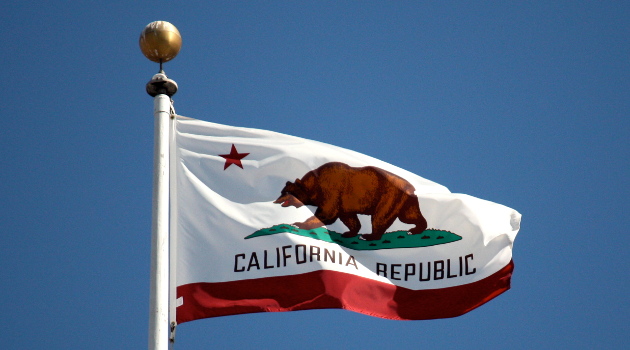Today we’re going to mix two things that seem disconnected.
Our first topic is federalism, which is the sensible principle that deciding things at the local level, or even state level, is better than being ruled by faraway politicians and a big, centralized bureaucracy.
You can still get awful policies from local politicians and state politicians, of course, but at least it is easier to monitor their actions, remove them from power, or move away if necessary.
A big reason I’m a fan of federalism because it creates competition among governments. For instance, I cheer when businesses, investors, and entrepreneurs escape from high-tax states like California and New York and move to zero-income tax states such as Florida and Texas.
When programs are centralized in Washington, by contrast, you simply add another layer of bureaucracy and expense.
But it’s not just a money issue. When Washington is in charge, you get a one-size-fits-all approach. That means there’s no room for innovation and diversity, which makes it much less likely that policy makers can learn what works and what doesn’t work.
Our second topic involves a story about record-setting levels of waste in California.
In a column published by Reason, Steven Greenhut describes how the unemployment insurance program in the Golden State has experienced jaw-dropping levels of fraud.
This is one of the most infuriating scandals ever to plague our state. The department, which is responsible for paying out unemployment insurance claims, has been incapable of paying legitimate claims even as it has paid as much as $31 billion in fraudulent ones, often to inmates. …Here’s a desk-pounder from CBS Los Angeles: “A Fresno girl who just celebrated her first birthday is collecting $167 per week in unemployment benefits after a claim was filed on her behalf stating that she was an unemployed actor.” The Southern California News Group reported last month that one man “is suspected of using the identities of 23 inmates and others to obtain more than $3 million in state unemployment benefits.” Approximately 10 percent of the paid claims have been fraudulent, with another 17 percent under suspicion. This will be “the largest fraud investigation in the history of America,” according to one expert.
I suspect that we’ll discover that most of the suspicious payments also were fraudulent, which means one-fourth of the money went to crooks.
Meanwhile, the same bureaucrats who blindly sent out checks to the wrong people also managed to ignore inquiries from the right people.
The department’s call center only answered 1 percent of calls that Californians had made to check on their claim status.
Amazingly, the Biden Administration has decided that the person in charge of all this waste and fraud should be rewarded.
Julie Su, the state labor secretary who was responsible for the department, may receive a big promotion…to serve as President Joe Biden’s pick for deputy secretary of the federal department of labor.
I fully agree with Mr. Greenhut’s concluding observation.
Welcome to…government, where no good deed goes unpunished and no level of incompetence goes unrewarded.
At this point, you may be wondering about the connection between our two topics.
To show how they are related, I’ll ask this rhetorical question: Why aren’t people in California upset about losing at least $31 billion to fraud, especially since the entire state budget is about $134 billion?
The answer is that they’re not wasting their own money!
The vast majority of the pandemic-related unemployment funds were provided by Washington, most notably (1) extended benefits under existing UI, (2) pandemic expansion of UI to cover people not normally eligible for UI, and (3) bonus payments.
So we shouldn’t be surprised that California bureaucrats didn’t care how much of the money was lost to fraud. As Milton Friedman wisely pointed out, there’s no incentive to be responsible when spending other people’s money on other people.
Now I’ll ask another rhetorical question: What would have happened if California was in charge of not only spending the money, but also was in charge of raising the money?
I’m sure there would have been plenty of waste and fraud, but even profligate California officials would have figured out it wasn’t a good idea to squander $31 billion of their own money.
After all, consider the case of Vermont, which quickly retreated from a proposal for single-payer health care once they realized the implications if they paid for it themselves.
The bottom line is you get better outcomes when there’s genuine decentralization. Simply stated, politicians have to be at least semi-responsible when they have to raise the money that they spend. It’s called accountability.
Which is why even the left-leaning OECD and left-leaning IMF have produced research confirming superior results with real federalism.
P.S. Switzerland is a great example of genuine federalism, whereas our system in the United States has been substantially eroded.
P.P.S. Big chunks of the federal budget should be wiped out and transferred back to state and local governments, including redistribution, health care, transportation, and education.
P.P.P.S. To see what Hayek and Mises wrote about federalism, click here.




